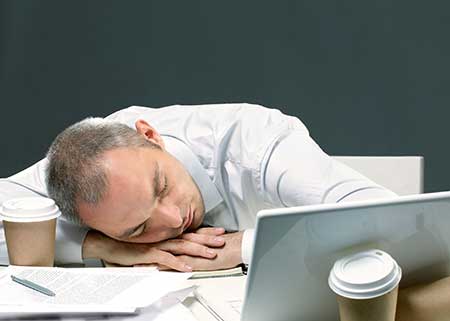News
The information presented on this page may be outdated. It may refer to situations which have changed or people who are no longer affiliated with the university. It is archived as part of Mississippi State University's history.
Make a resolution to get more sleep this new year

New Year's Resolutions can be difficult to maintain, but one that is worth keeping is getting more sleep at night.
12/17/2014
By: Brittany Claire Jacks
David Buys, state health specialist for the Mississippi State University Extension Service and researcher with the Mississippi Agricultural and Forestry Experiment Station, said a lack of sleep can lead to serious problems at home, on the job and on the road.
"Sleep deprivation may lead to drowsiness and an inability to focus and concentrate," he said. "Additionally, it is linked to drowsy driving; higher likelihood depression and substance abuse; and an inability to react to signals or remember new information."
Buys offered some tips for those interested in getting enough sleep.
"Some things you can do to get enough sleep on a routine basis include keeping a schedule and sleeping and waking at the same time each day," Buys said. "Other ways include exercising, but not too close to bedtime; avoiding stimulants, including caffeine, alcohol or nicotine before bed; having mealtime several hours before bedtime; and keeping TV and electronic devices away from the bed."
Lori Elmore-Staton, assistant professor for the MSU School of Human Sciences, said that sleep deprivation can affect health.
"Although we do not completely understand the effects of sleep on your health, we do know that sleep plays a role in the regulation of hormones," she said. "Recent research suggests that the misalignment of the circadian rhythms due to irregular sleep patterns may be increasing risks of cancer and diabetes."
But there are short-term risks associated with lack of sleep, too.
"There are a number of health problems related to shortened or irregular sleep patterns, as immune system functioning is weakened when sleep is not optimal. That means that when you do not get the optimal, quality or amount of sleep, you are more susceptible to common illnesses, such as colds and stomach viruses," she said.
Staton said that being sleep deprived can also increase weight gain.
"Sleep deprivation is associated with obesity," she said. "It is thought that appetite hormones are affected by sleep and when you don't get enough sleep, your brain tells you that you are hungry. It does not signal you are full as fast, and it may make you crave more unhealthy foods."
View More News